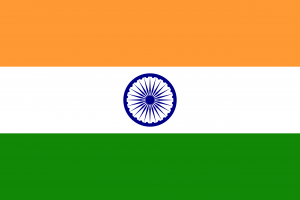Language/Hindi/Vocabulary/Modes-of-Transportation
| ◀️ Adverbs of Manner — Previous Lesson | Next Lesson — Asking for Directions ▶️ |
Introduction[edit | edit source]
In this lesson, we will learn about different modes of transportation in Hindi. Being able to communicate about transportation is essential when traveling or living in a Hindi-speaking country. We will explore various words and phrases related to travel and transportation, such as car, bus, train, and more. By the end of this lesson, you will have a solid understanding of transportation vocabulary in Hindi.
Modes of Transportation[edit | edit source]
Let's begin by learning the Hindi words for different modes of transportation. The table below provides examples of transportation vocabulary in Hindi, along with their pronunciation and English translation.
| Hindi | Pronunciation | English |
|---|---|---|
| कार (car) | kār | car |
| बस (bus) | bas | bus |
| ट्रेन (train) | ṭren | train |
| मोटरसाइकिल (motorcycle) | moṭarsāikil | motorcycle |
| साइकिल (bicycle) | sāikil | bicycle |
| हवाई जहाज़ (airplane) | havāī jahāz | airplane |
| ट्रैक्टर (tractor) | ṭrektar | tractor |
| ट्रक (truck) | ṭrak | truck |
| वैन (van) | vain | van |
| स्कूटर (scooter) | skūṭar | scooter |
As you can see, each word is accompanied by its pronunciation to help you correctly pronounce the words in Hindi. Take your time to practice saying each word out loud to improve your pronunciation skills.
Cultural Insights[edit | edit source]
Transportation in India is a fascinating aspect of the culture. The diverse geography and large population have led to a wide variety of transportation options. In urban areas, such as Delhi and Mumbai, you will find a well-developed public transportation system consisting of buses, trains, and metros. These modes of transportation are not only convenient but also cost-effective for daily commuting.
In rural areas, on the other hand, people rely more on personal vehicles like cars, motorcycles, and bicycles. This is mainly due to the lack of public transportation infrastructure in these regions. Additionally, taxis and auto-rickshaws are commonly used for short-distance travel within cities.
India is also known for its extensive railway network. Indian Railways, with its vast network of tracks, is one of the largest and busiest railway systems in the world. Trains are a popular mode of transportation for long-distance travel, connecting various cities and towns across the country.
Another interesting fact is that India is home to the world's second-largest road network, spanning over 5.5 million kilometers. This extensive road network allows for easy accessibility and transportation across the country.
Exercises[edit | edit source]
Now, let's practice using the transportation vocabulary we have learned. Complete the following exercises by translating the given English sentences into Hindi.
1. Translate the following sentence into Hindi: "I am going to the airport by taxi." 2. Translate the following sentence into Hindi: "We are taking a train to Jaipur." 3. Translate the following sentence into Hindi: "He rides a bicycle to work every day."
Solutions[edit | edit source]
1. "I am going to the airport by taxi." - मैं टैक्सी से हवाई अड्डे जा रहा हूँ। (main ṭeksi se havāī adde jā rahā hūn) 2. "We are taking a train to Jaipur." - हम जयपुर के लिए ट्रेन पकड़ रहे हैं। (ham jayapur ke lie ṭren pakṛ rahe hain) 3. "He rides a bicycle to work every day." - वह हर दिन काम पर साइकिल चलाता है। (vah har din kām par sāikil calātā hai)
Conclusion[edit | edit source]
Congratulations! You have successfully learned the vocabulary related to travel and transportation in Hindi. With this knowledge, you can confidently communicate about modes of transportation and navigate your way through Hindi-speaking regions. Keep practicing and exploring the rich cultural aspects of transportation in India. Happy travels!
Sources[edit | edit source]
- My First Hindi Words! Things That Go! | Hindi by Reena– hindibyreena
- My First Hindi Words! - Things That Go! Board Book - PRE-ORDER!
- "My First Hindi Words!" Board Book Gift Set
Other Lessons[edit | edit source]
- Animal
- Family Members
- Bedroom
- Hindi loan words in English
- Asking for Directions
- Count to 10
- Geography
- Slang
- Herbs and Spices
- “to feel like”
| ◀️ Adverbs of Manner — Previous Lesson | Next Lesson — Asking for Directions ▶️ |

